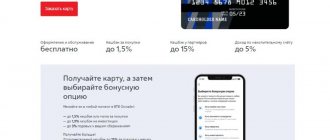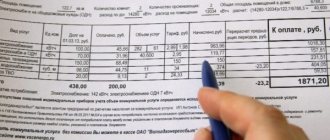Recently, in one of the work chats, there was talk about the fact that VTB began to charge a commission for paying for housing and communal services in the Internet bank. One of my colleagues was surprised: it seems that all banks charge a commission. In reality, this is, of course, not the case.
My colleagues and I live in Moscow, for the Moscow State Budgetary Institution Zhilischnik and other suppliers there are generally a lot of ways to pay the bill without %. In other regions there are fewer options, but they can also be found if you type in Yandex something like “payment for housing and communal services without commission Ryazan”.
As a piece of advice, I can recommend checking whether your suppliers are in State Services (registration is required), on the MTS Money website (possible without registration) and YuMoney (formerly Yandex.Money, you can create and authorize a wallet completely online). There are many suppliers whose services can be paid without %. This option is also available in the applications of some banks, for example, Otkritie and Tinkoff Bank.
Yes, you may have to spend some time the first time to find such an option for yourself. But then you will save a small amount every month.
I don’t pay any fees for banking services or individual services at all. Now I’ll tell you where you can save a pretty penny.
Money transfer fee
I have cards from many banks. From Sber's free instant I transfer within their limit of 50 thousand per month without commission. If suddenly you need to transfer someone to Sber, and your limit has already run out, then you can transfer from a card of almost any other bank to Sber using a phone number through the Fast Payment System.
For 99% of other banks, you don’t even need to connect anything for an outgoing transfer. If you don’t find a transfer function using your mobile number to another bank in your mobile application, type “Bank XXXX transfer via SBP” in Yandex. In most cases, you will be successful. Transfers via SBP are free in the amount of 100 thousand per month from one bank for one person.
There are banks where you can transfer a certain amount to any bank for free using your card number. For example, at Tinkoff Bank you can transfer 20 thousand rubles a month like this, either to Sberbank or somewhere else.
VAT – 2022
The best speaker on tax topics, , will prepare you for filing your return on January 14 . There are 10 out of 40 places left for the online workshop . The flow is limited, as there will be live communication with the teacher live. Hurry up to get into the group. Sign up>>>
The Supreme Court understands the legality of the commission for payment of utilities
Foat Suleymanov challenged the FAS letter “On the legality of charging a commission when paying for housing and communal services” in the Supreme Court. In the letter, the antimonopoly service claims that the fact of the commissions does not violate antimonopoly legislation. In particular, the document states that now it is possible to pay for housing and communal services through a number of organizations: banks, payment agents or postal operators. When a citizen tries to pay for services in this way, the organization is considered to be providing him with a service for which it has the right to charge money. There is no ban on commissions in the law, and those who accept payments have the right to take them, follows from the FAS letter. The law also does not oblige resource supplying organizations to provide free services for accepting and transferring payments. Citizens can pay through the agent through whom it is convenient for them.
0.5 to 2% of payment
is a commission for paying for housing and communal services, regardless of the payment method
At the same time, agreements have been concluded with a number of organizations in which there is a condition that there is no fee for making utility bills. “Accordingly, consumers of utility services turn to such organizations because they do not need to pay a commission for making payments for utility services,” the FAS letter says. But this practice will be abolished in September 2021, when the corresponding government decree comes into force. The measure should eliminate the advantage for individual organizations.
The applicant’s disagreement was caused by the assertion that the law does not require the resource supplying organization to provide free services. At the same time, the Ministry of Justice also sent a response to the complaint, which indicated that in the letter the antimonopoly service went beyond its powers.
The Economic Board decided whether a “subsidy” is possible for exclusion from the Unified State Register of Legal Entities
Representatives of the FAS indicated that they did not interpret laws that did not relate to the antimonopoly service in any way, but simply provided references to them. The explanations were due to the fact that citizens who are dissatisfied with the size of commissions when accepting payments also apply to the FAS; there are many such appeals, so it became necessary to indicate that the commissions themselves do not violate antimonopoly legislation. The letter is used by the territorial bodies of the FAS for such requests from citizens.
Representatives of the FAS confirmed that a law is currently being developed that will completely prohibit commissions for payment of utility services, this just confirms the position of the agency.
The judge who considered the case, Yuriy Ivanenko, refused to satisfy the applicant’s complaint (case No. AKPI19-922).
It recently became known that the issue of commission for paying for housing and communal services is planned to be discussed in the State Duma. By the end of February, a bill on the abolition of bank commissions when paying for housing and communal services will be submitted to the lower house of parliament. It is not yet clear how exactly the issue will be resolved. “There are two options for regulating this issue. The first is to amend the Housing Code to prohibit charging commissions on utility bills. The second option is to make changes establishing such a ban in several legislative acts, including the law on banks and on the national payment system,” Izvestia quotes the words of the head of United Russia in the State Duma, Sergei Neverov.
Initially, it was proposed to prohibit commissions when paying fines and other obligatory payments, but after consultations with the industry community, they decided to limit themselves to transfers for communal services.
This is not the only “loss” of banks in the coming year: bank roaming, a commission for transfers to different regions within one financial institution, was recently cancelled.
- Irina Kondratyeva
- Supreme Court of the Russian Federation
It is possible to pay for housing and communal services through Bank DOM.RF without commission
Bank DOM.RF has abolished the commission when paying for housing and communal services through a mobile application, which takes into account the needs of a modern audience and allows you to effectively manage finances.
“According to the market, bank commissions for paying for housing and communal services can reach 1.5%. This is due to the fact that the credit institution has some costs associated with making the payment, so a number of players are forced to take funds from clients. Bank DOM.RF takes on such expenses. We have long abandoned charging fees for those who make payments for housing and utility expenses through the bank’s application. Today, one of our main tasks is to make remote banking services as accessible as possible and continue to develop its capabilities,” said Danila Litvinov, Deputy Chairman of the Board of Bank DOM.RF.
At the end of 2021, the audience of active users of the DOM.RF Bank mobile application grew almost threefold. The number of people performing daily transactions in the system has also increased. The main advantage of the updated mobile bank is the ability to quickly and without commission carry out the most popular transactions: repay current loans from cards of any banks, open deposits, savings and current accounts in different currencies, as well as make money transfers using a card number or phone number.
It is worth noting that users of the application have access to currency conversion at a preferential rate, which is one of the best on the market for premium clients. In addition, the list of free payment functions available from a mobile phone has been expanded. You can pay without a commission not only for utilities, but also for cellular communications, the Internet, television, as well as taxes, fines, government services, etc.
Special functionality has been added for clients purchasing real estate in a new building using escrow accounts. Such clients will be able to track the status of the escrow account from the moment it is reserved until the full amount of the cost of the property is secured on it. In addition, the application provides information about the developer, the name of the object and the date of its commissioning.
JSC "Bank DOM.RF" is an authorized bank in the field of housing construction in accordance with the Federal Law of June 27, 2019 No. 151-FZ "On Amendments to the Federal Law "On Participation in Shared Construction of Apartment Buildings and Other Real Estate and on Amendments into some legislative acts of the Russian Federation" and certain legislative acts of the Russian Federation." The sole shareholder of JSC Bank DOM.RF is JSC DOM.RF. JSC "Bank DOM.RF" finances housing construction projects using escrow accounts in all constituent entities of the Russian Federation.
Bank commission for housing and communal services payments
The amount of the commission always depends on whether the person is a bank client. Having a plastic card allows the client to pay for housing and communal services at the bank's cash desk absolutely free of charge. Bank of Moscow and Sberbank charge 2% for service. Other organizations have the right to establish their own rules for customer service.
Cooperation with a bank makes it possible to get rid of paperwork. It is possible to pay utility bills at the cash desk without presenting a receipt. Using a billing system allows you to use a unique payer code. Using this information, it will be possible to identify a personal account in the bank’s database in order to make transfers of funds to the required housing and communal services institution. Your own code can be viewed in the EPD (upper right corner); it will consist of 10 digits that must be announced to the operator to complete the procedure.
Commission for paying for housing and communal services in the terminal
Payment terminals have long become an integral part of the lives of most residents of Russia. It is possible to pay off debt in any organization with the help of special equipment, which can be found not only in banks, but also in stores, shopping centers, and educational institutions.
You can use the terminal even without a credit card. Usually, to make a payment there is no need to enter bank account or plastic card information. Simply select the institution, payer code and indicate the amount to be transferred.
State legislation clearly regulates the operating rules for companies that provide payment services, so everyone can find out the cost of the service in advance. Advantages of this method:
- fast completion of financial transactions;
- work twenty-four a day;
- possibility of using cash;
- guarantee of receiving a receipt (cheque).
Despite this, many utility payers refrain from using terminals due to the significant gradation of interest rates for commissions. Some companies charge up to 9% for any procedure. A special feature is also the inability to get change, as well as the need to deposit bills that are multiples of the terminal’s denomination. Companies providing such services will not charge the population amounts exceeding those allowed by the state.
What does the law say?
In accordance with the Law on the Protection of Consumer Rights (clause 1 of Article 16.1), the utility service provider is obliged to ensure that citizens make payments in any convenient way. However, he does not have the right to set different prices for the same service in cash or by bank transfer. Therefore, the commission of the post office or bank that accepts the payment is never included in the payment.
Following the norms of Art. 37 of the Law on Protection of Consumer Rights and Art. 861 of the Civil Code of the Russian Federation, a consumer of housing and communal services can go to the cash desk of its supplier and deposit cash without a commission. In addition to this method, citizens have the right to pay utility bills:
- through credit organizations;
- postal operator;
- through online services.
At the same time, they have the right to establish a commission for the service provided in accordance with Part 2 of Article 3 of Law No. 103-FZ of June 3, 2009. The legislation does not contain any prohibitions in this part. The fee is charged when an intermediary (post office or bank) accepts payment from an individual and transfers it to the utility service provider. Citizens have the right to agree with it or choose another method of paying for bills, where a commission is not provided.
Subtraction task
Until now, water utilities, electric networks, gas and heat suppliers, or organizations responsible for waste removal could enter into agreements with banks and other organizations that they would pay the fee for the service of accepting utility payments themselves. And a resident who comes to the bank to pay for an apartment pays only the amount indicated on the receipt. However, in essence, residents still paid: the costs of the utility organization on commissions were included in the tariffs for water, heat, gas, electricity and garbage removal.
In addition, resource providers could not conclude agreements with all organizations through which residents pay for utilities, adds Irina Gentsler, director of the Urban Economy department of the Institute of Urban Economics Foundation. “In one organization, consumers did not pay a commission (the resource supplying organization paid for them), and in another, they were charged a commission. Therefore, utility payers in organizations where they could pay without a commission. And consumers, from whom a commission was charged when making a payment, actually paid a double commission - one to the organization through which they pay for services, and the second as part of the tariff payment (this commission, apparently, remained at the disposal of the resource-supplying organization).”
After excluding the commission from the tariff, all residents will pay the commission independently and in the amount established by the organization accepting payments. And this organization can also exempt the acceptance of payments from commission - for example, if the payment is made by bank transfer or in some other cases, Genzler clarifies.
Tariffs for housing and communal services are established in advance, long before the date of their increase. So the ban on including commissions in the tariff will actually begin to take effect only after the next tariff increase; residents will notice this only next year, the expert adds.
The establishment of the ban made it possible to eliminate the possibility of a situation in which consumers of utility services pay a commission twice or pay for services that were not actually provided to them, says Olga Sergeeva, head of the Financial Markets Control Department of the Federal Antimonopoly Service of Russia. “In addition, this will encourage organizations providing payment services, in the fight for consumers, to reduce the cost of their services, improve their quality and ease of provision, including through the creation of various online payment services. Which, in turn, will encourage the consumer to choose payment methods that are more profitable and convenient for him,” says Sergeeva.
Meanwhile, in February of this year, a bill was introduced to the State Duma banning the collection of commissions when citizens pay for housing and utilities. It was supported by the government and adopted in the first reading in April. However, for the second reading it was adjusted - the ban on commissions is proposed to be introduced with a significant caveat: only pensioners and recipients of housing subsidies will be able to avoid paying them.
2. Commission fee when paying for housing and communal services
Consideration of a bill completely exempting Russians from commission fees when paying for utility services has been postponed. In this regard, you should not expect such a gift from the state in 2021.
But some innovations in the collection of commission fees have been introduced:
- From September 13, 2021, suppliers are not allowed to include in the calculation of tariffs the expenses necessary to process payments for housing and communal services.
- The utility service provider must provide citizens with the opportunity to pay bills without additional fees and notify about this method.
If a utility company does not comply with the established rules, it may be fined. The fine can be up to 50,000 rubles.










